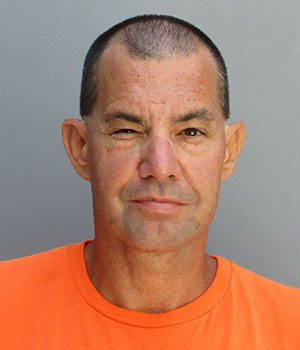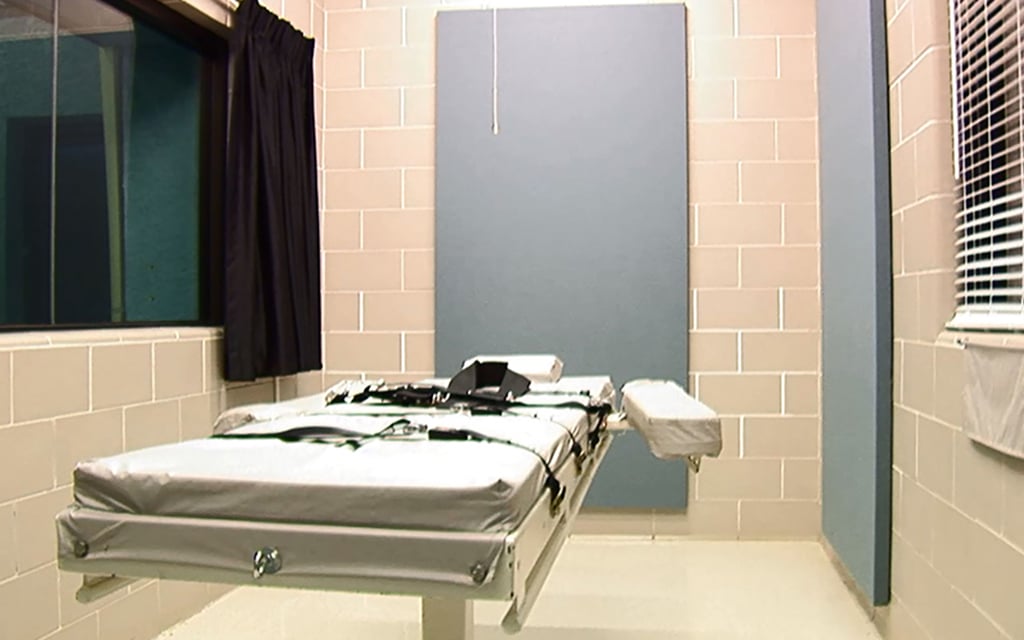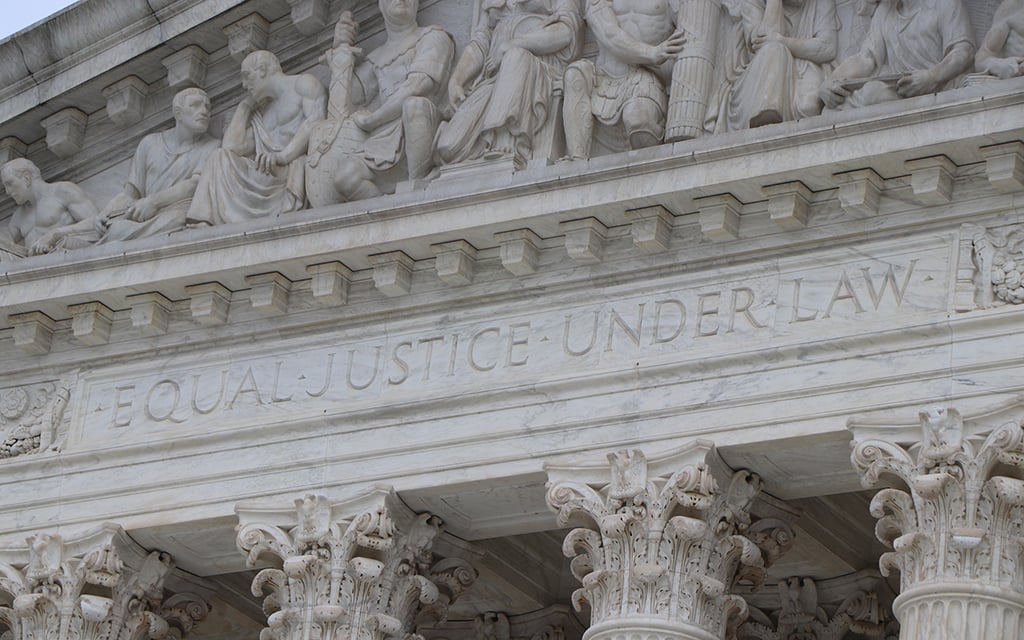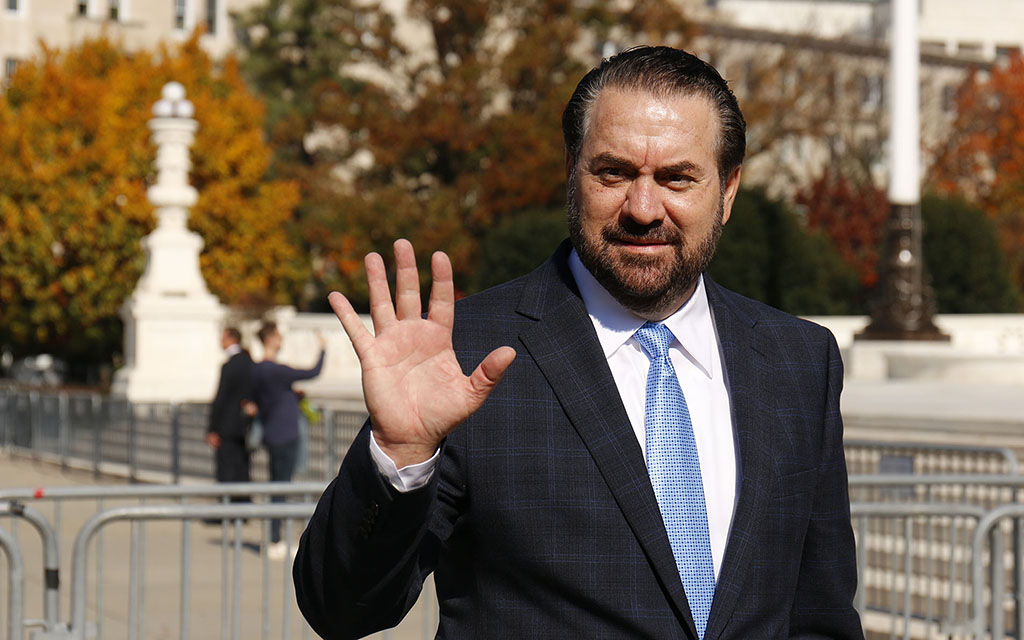WASHINGTON – Gov. Katie Hobbs said Friday that the state will not proceed with the execution of convicted murderer Aaron Gunches, one day after the Arizona Supreme Court said it had no choice but to order his death.
The Supreme Court order Thursday came even though Hobbs and Attorney General Kris Mayes were moving to reverse the death warrant that had been put in motion by former Attorney General Mark Brnovich.
Hobbs said in a statement Friday the court noted that its death warrant “authorizes an execution, and does not require it.” She said the state “therefore… does not intend to proceed with an execution on April 6” because of ongoing concerns about the state’s death penalty protocols.
“Recent executions in Arizona have raised serious questions about the State’s execution protocols. We must ensure that any execution occurs in compliance with all state and federal laws and regulations before proceeding,” she said in a prepared statement.
“Under my Administration, an execution will not occur until the people of Arizona can have confidence that the State is not violating the law in carrying out the gravest of penalties,” her statement said.
Hobbs also announced the appointment of retired federal Judge David Duncan to review the state’s lethal injection protocols that led to an eight-year hiatus in the death penalty after a botched execution in 2014.
It’s the latest twist in a case that saw Gunches waive all his appeals and actually petition the court last year to sign his death warrant, before reversing course with last fall’s election of a Democratic governor and attorney general, who promised to pause executions in the state.
In a Jan. 4 motion to withdraw his death warrant, Gunches pointed to recent executions by corrections officials who “are not medical professionals, nor are they certified for IV insertion, nor are they capable of performing surgery. Plain and simple: This was torture. Aaron Gunches does not want to be tortured before he is executed.”
Mayes filed a motion on Jan. 20 to withdraw the death warrant, saying her office needed to ensure that “the public can be confident that executions are being carried out lawfully and humanely.” That same day, Hobbs issued an executive order promising to appoint a commissioner to review the Arizona Department of Corrections, Rehabilitation and Reentry’s execution procedures.
But the court Thursday said it’s hands were tied: Once a death warrant request has been filed, the only question for the court is whether Gunches meets the criteria for execution. He did, the court said, and nothing in Gunches’ or the state’s filings suggested otherwise.
“If those criteria are met, under statute and rule the Court ‘shall’ and ‘must’ issue the warrant,” the order said. “As the state has placed the Court on notice that the criteria are satisfied, and no party having asserted otherwise, the Court’s duty is to issue the warrant that authorizes the execution.”
The court set April 6 as the date for Gunches’ execution by lethal injection.
A spokesperson for Mayes said Friday that the attorney general’s office “has been in contact” with the governor’s office, but had no further comment on the issue.
Gunches has been on death row since 2008, six years after he shot and killed his girlfriend’s ex-husband, Ted Price, execution-style on the Salt River Reservation, shooting him three times in the chest and once in the back of the head.
A month later, in January 2003, Gunches was stopped by an Arizona Department of Public Safety officer. He shot the officer twice, one shot striking the officer’s bulletproof vest and the other deflecting off his watch. After Gunches’ arrest, authorities matched the gun from the officer’s shooting to the one that killed Price.

Aaron Brian Gunches, who pleaded guilty to a 2002 execution-style murder, had asked the state to issue his death warrant, then changed his mind. (Photo courtesy Arizona Department of Corrections, Rehabilitation and Reentry)
Price’s sister, Karen, said in court filings that Gunches’ execution should be carried out because she and her family “have the right to justice and finality.”
“The constitutional guarantees of ‘justice’ and a ‘prompt and final conclusion’ of this case remain unfulfilled promises to Ms. Price and her family,” her attorneys wrote, according to news reports. “They deserve a life after the criminal case is final, one in which they are no longer wondering whether there really ever will be justice.”
Arizona had halted executions in 2014, when it took two hours to kill death-row inmate Joseph Wood by lethal injection. But Brnovich said in 2019 that issues with the death penalty had been resolved and that it was time to resume executions for those death-row inmates who had exhausted their appeals.
Executions resumed last year, when the state put three inmates to death. When Gunches asked the state on Nov. 25 to issue his death warrant, Brnovich agreed in filings on Dec. 7 – a month after the election of Mayes.
Despite Brnovich’s assurances, Joshua Spears of the American Civil Liberties Union of Arizona said there are still many questions about the drugs used in executions and the qualifications of those involved.
He said Wood’s execution “was pretty horrific to watch, according to witnesses, and it caused national embarrassment. It caused us to pause executions for eight years and we are at risk of botching another one until we have more transparency.”
“They (executions) do not go exactly as they’re supposed to go. And those issues create questions for us,” Spears said. “If they’re having problems that we can see, what’s going on behind the scenes? What is the qualification of the executioners if they’re having trouble carrying out the executions in the manner they’re supposed to?”
Hobbs said in her statement Friday that execution protocols are not the only problem facing the corrections department, pointing to a federal court ruling that found substandard medical and mental health care that violated inmates’ constitutional rights.
“From day one, we’ve known that we inherited a deeply broken corrections system,” her statement said, “Just remedying those constitutional violations and simply bringing the system up to constitutional compliance will take Herculean amount of time and resources.”
Dale Baich, a former federal public defender who now teaches at Arizona State University’s Sandra Day O’Connor College of Law, called Gunches’ case “a unique situation.” But he said the court’s decision itself was clear.
“The rules are very specific, the statute and the rules are very specific. And as you read, you see where they say, ‘We must, we shall,'” Baich said. “The court was dismissive of the concerns that the attorney general raised, and that Aaron raised, quite frankly, about problems with recent executions in Arizona.”
Richard Dieter, executive director of the Death Penalty Information Center, said Thursday that capital punishment is “a largely political process” rather than “part of the criminal justice system.”
“The death penalty gets one side, the toughness on crime, and the other side, it’s a failed system that needs to be studied and used, if at all, with great caution,” Dieter said. “You get an election and all of a sudden, the death penalty becomes prominent or the death penalty recedes into the background.”



